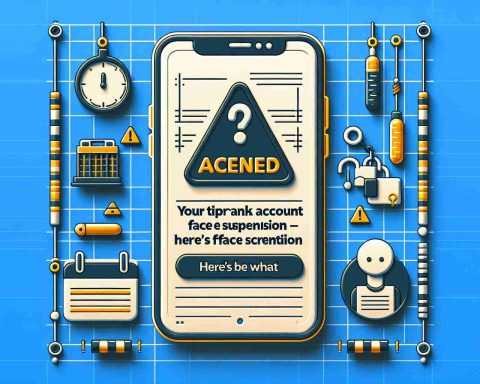Dogecoin’s soaring popularity extends beyond typical financial speculation, hinting at its transformative influence on global economic frameworks and environmental concerns.
Empowering Innovation Worldwide
As Dogecoin rises, it is fueling a shift toward cutting-edge business initiatives. The decentralized foundation of blockchain is geared to democratize financial accessibility, potentially triggering a surge in entrepreneurial ventures and even empowering local community initiatives. This opens up new spaces for innovation while presenting regulatory challenges in a world where traditional financial boundaries are dissipating. Policymakers face the daunting task of harmonizing innovation with governance, creating a global landscape that honors freedom and security.
Environmental Implications: A Hidden Challenge
Despite the exciting prospects of cryptocurrency, there is an underlying environmental cost that cannot be ignored. The high energy demand for blockchain and its validation processes can consume resources at a scale comparable to entire nations. The irony lies in the risk that the engines driving digital advancements might trigger environmental crises. It is imperative to champion sustainable practices within the mining industry, pressing for technology that is not only efficient but also ecologically sound.
The Future of Global Finance: Promise or Peril?
While Dogecoin’s place within the global financial system is uncertain due to its inherent volatility, the conversation around its potential roles is gaining momentum. As an inclusive digital currency, it could redefine financial frameworks worldwide, yet it also brings risks of instability. Governments worldwide must systemically evaluate the benefits and threats posed by adopting such decentralized financial instruments. Dogecoin’s story prompts a deep dive into the intricate balance of innovation, global integration, and thoughtful regulation in our rapidly evolving digital age.
Cryptocurrency Predictions for 2025: Navigating the Pros, Cons, and Controversies
Cryptocurrencies like Dogecoin have transformed from niche assets to major focal points within the investment landscape. As we look ahead to 2025, investors are seeking guidance on the potential trajectory of digital currencies, while weighing the inherent risks and rewards.
Investor Advice and Cryptocurrency Rate Predictions
For potential investors, understanding the volatile nature of cryptocurrencies is paramount. Predictions for cryptocurrency rates by 2025 remain speculative, with various factors influencing these projections. Analysts highlight that while the potential for exponential gains exists, so too does the risk of significant losses. A diversified investment strategy, including both traditional assets and cryptocurrency, is advisable to mitigate risk.
Risks Inherent in Cryptocurrency Investment
Cryptocurrencies, including Dogecoin, present unique risks. Regulatory changes worldwide could heavily influence their valuation and utility. Market manipulation, security vulnerabilities, and rapidly shifting public sentiment all contribute to the uncertainty in the crypto market. As such, potential investors must be prepared for a roller-coaster ride and consider only investing what they can afford to lose.
Pros and Cons of Investing in Cryptocurrencies
The pros of investing in cryptocurrencies include the potential for high returns and the ability for assets to be traded 24/7. Furthermore, as digital currencies continue to gain mainstream acceptance, their utility and value may increase. On the other hand, the cons cannot be ignored—extreme volatility, the lack of historical data for accurate long-term forecasting, and substantial energy consumption are significant downsides.
Controversies and Environmental Concerns
Environmental concerns are increasingly at the forefront of the cryptocurrency debate. The energy-intensive nature of the blockchain validation process draws substantial criticism, comparable to the energy consumption of small nations. Advocates argue for sustainable mining practices and the development of eco-friendly technologies to mitigate these negative impacts.
Conclusion and Related Resources
Cryptocurrencies are undoubtedly shaping the future of global finance, offering both promise and peril. As their role continues to evolve, investors and policymakers alike must navigate the complex interplay of innovation, risk, and regulation. For further insights into the world of blockchain and investment strategies, resources such as CoinDesk offer up-to-date information and analysis.
Cryptocurrencies hold the potential to transform financial systems worldwide, but a cautious and informed approach is essential for those looking to participate in this disruptive market.








